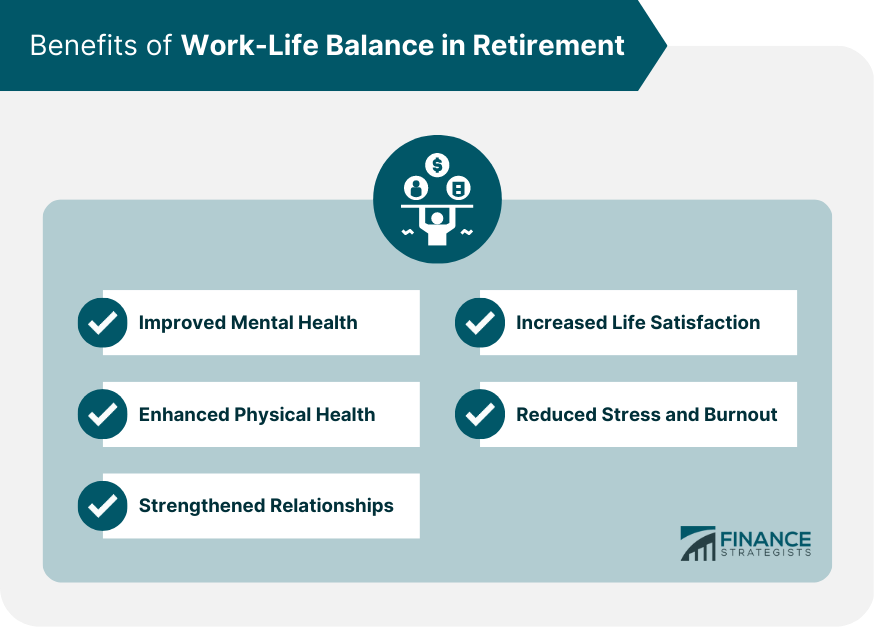Overview
What is work-life balance?
Work-life balance refers to the equilibrium between work and personal life. It is the ability to effectively manage the demands of both work and personal responsibilities without one negatively impacting the other. Achieving work-life balance is essential for maintaining overall well-being and satisfaction. It allows individuals to have time for work, family, friends, hobbies, and self-care. By prioritizing and setting boundaries, individuals can reduce stress, improve productivity, and enhance their overall quality of life.
Why is work-life balance important?
Work-life balance is important because it allows individuals to maintain a sense of well-being and fulfillment in both their personal and professional lives. When we are able to find a balance between work and other aspects of our lives, we can experience increased productivity, improved mental health, and better overall satisfaction. It also enables us to have time for self-care, relaxation, and pursuing new things to try. By prioritizing work-life balance, we can avoid burnout and maintain a healthier lifestyle.
Challenges in achieving work-life balance
Maintaining a healthy work-life balance can be a constant struggle in today’s fast-paced world. With the demands of work and personal life constantly pulling us in different directions, it can be difficult to find the right balance. One of the biggest challenges in achieving work-life balance is the blurred boundaries between work and personal life. With technology enabling us to be connected 24/7, it’s easy to find ourselves constantly checking emails or working late into the night. Another challenge is the pressure to constantly be productive and achieve success in both our professional and personal lives. This can lead to feelings of guilt or burnout when we prioritize one over the other. Additionally, the lack of support from employers and the fear of missing out on career opportunities can make it challenging to prioritize personal time and self-care. Despite these challenges, it is important to prioritize work-life balance for our mental, emotional, and physical well-being.
Setting Priorities
Identify your values and goals
When it comes to maintaining a healthy work-life balance, one of the first steps is to identify your values and goals. Understanding what is truly important to you can help guide your decisions and prioritize your time. Take some time to reflect on what brings you joy, fulfillment, and satisfaction in both your personal and professional life. This self-reflection will allow you to align your actions with your values and make choices that support your overall well-being. By identifying your values and goals, you can create a roadmap for achieving balance and ensure that your work and personal life are in harmony.
Learn to say no
One of the key secrets to maintaining a healthy work-life balance is learning to say no. Many people struggle with saying no because they don’t want to disappoint others or feel like they’re letting people down. However, constantly saying yes to every request and obligation can lead to feeling overwhelmed and burnt out. It’s important to prioritize your own well-being and set boundaries. Learning to say no allows you to focus on what truly matters to you and allocate your time and energy accordingly. By saying no to things that don’t align with your priorities, you create space for activities and relationships that bring you joy and fulfillment. So, don’t be afraid to say no when necessary and remember that it’s okay to put yourself first.
Delegate tasks and responsibilities
One of the most important tips for finding a work-life balance is to delegate tasks and responsibilities. Many people struggle with trying to do everything themselves, which can lead to burnout and stress. By delegating tasks to others, whether it’s at work or at home, you can free up time and energy to focus on the things that truly matter to you. This could mean assigning tasks to colleagues or family members, hiring help, or outsourcing certain responsibilities. Delegating not only helps lighten your workload, but it also allows others to contribute and grow. Remember, you don’t have to do it all on your own. Learning to delegate effectively is a key skill in maintaining a healthy work-life balance.
Time Management
Create a schedule
One of the key ways to maintain a healthy work-life balance is to create a schedule. By setting aside specific times for work, leisure, and personal activities, you can ensure that you are dedicating enough time to each aspect of your life. This helps to prevent burnout and allows you to prioritize your well-being. When creating your schedule, it is important to be realistic about your commitments and to include breaks and downtime. By doing so, you can better manage your time and energy, leading to a more balanced and fulfilling life.
Avoid multitasking
One important tip for maintaining a healthy work-life balance is to avoid multitasking. While it may seem like multitasking allows us to get more done in less time, research has shown that it actually decreases productivity and increases stress levels. When we try to juggle multiple tasks at once, our attention becomes divided, leading to a decrease in the quality of our work. Instead of trying to do everything at once, it’s important to prioritize tasks and focus on one thing at a time. By doing so, we can give our full attention to each task and complete them more efficiently. This approach can also help us avoid feeling overwhelmed and allow us to enjoy a greater sense of accomplishment. So, if you want to increase your sales productivity by creating more selling time, it’s essential to avoid multitasking and focus on one task at a time.
Take regular breaks
Taking regular breaks throughout the day is essential for maintaining a healthy work-life balance. It may seem counterintuitive, but stepping away from your work for short periods of time can actually increase productivity and prevent burnout. When you take breaks, you give your mind and body a chance to rest and recharge, allowing you to return to your tasks with renewed focus and energy. Whether it’s a quick walk outside, a short meditation session, or simply taking a few minutes to stretch, incorporating regular breaks into your day can make a big difference. So, don’t underestimate the power of taking breaks – they are key to finding balance in your life.
Self-Care
Prioritize self-care activities
In today’s fast-paced world, it’s easy to get caught up in the demands of work and neglect our own well-being. However, prioritizing self-care activities is essential for maintaining a healthy work-life balance. Taking time to engage in activities that promote relaxation and self-care, such as exercise, meditation, or spending time with loved ones, can help reduce stress and improve overall well-being. By making self-care a priority, we can recharge and rejuvenate ourselves, allowing us to be more productive and present in both our personal and professional lives.
Maintain a healthy lifestyle
Maintaining a healthy lifestyle is essential for achieving a good work-life balance. It involves making conscious choices to prioritize self-care and well-being. One of the key ways to maintain a healthy lifestyle is by taking care of your mental health. It is important for employers to recognize the impact of mental health on their employees’ overall well-being and productivity. By implementing supportive measures such as offering flexible work schedules, promoting work-life balance, and providing access to mental health resources, employers can create a positive and conducive work environment. These initiatives not only benefit employees but also contribute to a more engaged and productive workforce.
Practice mindfulness and relaxation techniques
In order to maintain a healthy work-life balance, it is important to practice mindfulness and relaxation techniques. Mindfulness involves being fully present in the moment and paying attention to your thoughts, feelings, and sensations without judgment. This can help reduce stress and improve focus. Relaxation techniques, such as deep breathing exercises, meditation, and yoga, can also help calm the mind and body. By incorporating these practices into your daily routine, you can better manage stress, increase productivity, and enhance overall well-being.
Setting Boundaries
Establish clear work hours
One important tip for maintaining a healthy work-life balance is to establish clear work hours. It can be tempting to work around the clock, especially when working from home or running your own business. However, setting specific work hours helps create boundaries and ensures that you have time for other important aspects of your life. Try to determine the hours that work best for you and stick to them as much as possible. This will help you maintain a sense of routine and prevent work from taking over your entire day. By setting clear work hours, you can prioritize your personal life and give yourself the opportunity to relax and recharge.
Limit work-related communication outside of work
In today’s digital age, it can be difficult to disconnect from work even after leaving the office. However, it is important to set boundaries and limit work-related communication outside of work hours. Constantly checking emails and responding to work messages can blur the line between personal and professional life, leading to increased stress and a lack of work-life balance. By establishing clear boundaries and designating specific times for work-related communication, individuals can better prioritize their personal time and focus on activities that promote relaxation and well-being.
Create a designated workspace
When it comes to maintaining a healthy work-life balance, creating a designated workspace is essential. Having a dedicated area for work helps to create boundaries and separate work from personal life. It allows you to mentally switch into work mode when you enter the space and switch out of it when you leave. This helps to create a sense of structure and routine, making it easier to stay focused and productive. Additionally, a designated workspace can help reduce distractions and interruptions, allowing you to fully immerse yourself in your work. Whether it’s a separate room, a corner of your living room, or even just a specific spot at your dining table, find a space that you can associate with work. Make it comfortable and organized, with all the necessary tools and equipment within reach. By creating a designated workspace, you’ll be setting yourself up for success in achieving a healthy work-life balance.
Conclusion
Achieving work-life balance is possible
Maintaining work-life balance is essential for overall well-being and success. It can be challenging to juggle the demands of work and personal life, but with the right strategies, it is possible to achieve a healthy balance. One important aspect of maintaining work-life balance is setting boundaries. This means clearly defining your work hours and sticking to them, as well as making time for activities and relationships outside of work. Another key factor is prioritization. It is important to identify your priorities and focus on what truly matters to you. This may involve delegating tasks, saying no to non-essential commitments, and learning to manage your time effectively. Additionally, taking care of your physical and mental health is crucial for maintaining work-life balance. This includes getting enough sleep, eating well, exercising regularly, and practicing self-care. Overall, maintaining work-life balance requires conscious effort and a commitment to prioritize your well-being.
It requires conscious effort and prioritization
Maintaining a healthy work-life balance is not something that happens by chance. It requires conscious effort and prioritization. In today’s fast-paced world, it can be easy to get caught up in the demands of work and neglect other important aspects of life. However, finding the right balance is crucial for overall well-being and productivity. To achieve this balance, it is important to implement strategies to assess and maintain a balanced workload distribution within your team. This involves delegating tasks effectively, setting realistic goals, and promoting open communication. By doing so, you can ensure that everyone in your team feels supported and valued, leading to a more harmonious work environment. So, take the time to evaluate your priorities and make conscious choices that contribute to a healthy work-life balance.
Remember to take care of yourself
Maintaining a healthy work-life balance is crucial for overall well-being. It’s easy to get caught up in the demands of work and neglect our personal needs. However, it’s important to remember that self-care is not selfish, but rather a necessary step towards achieving balance. One of the key strategies to cope with work-related anxiety is to prioritize self-care activities. This can include setting boundaries, practicing mindfulness, and engaging in activities that bring joy and relaxation. By taking care of ourselves, we can recharge and rejuvenate, allowing us to be more productive and present in both our personal and professional lives.





